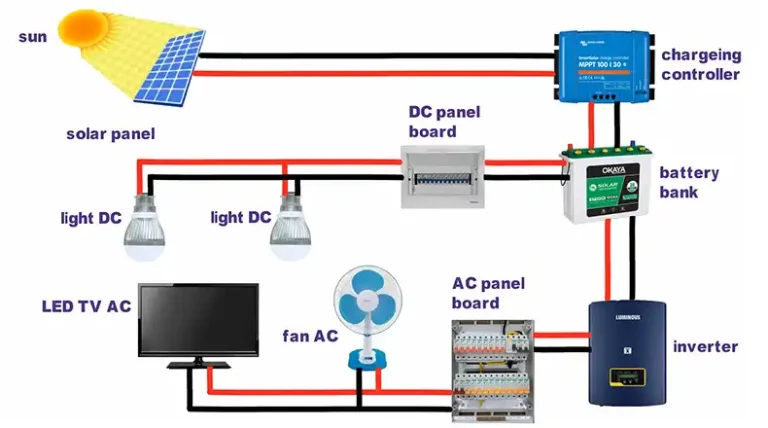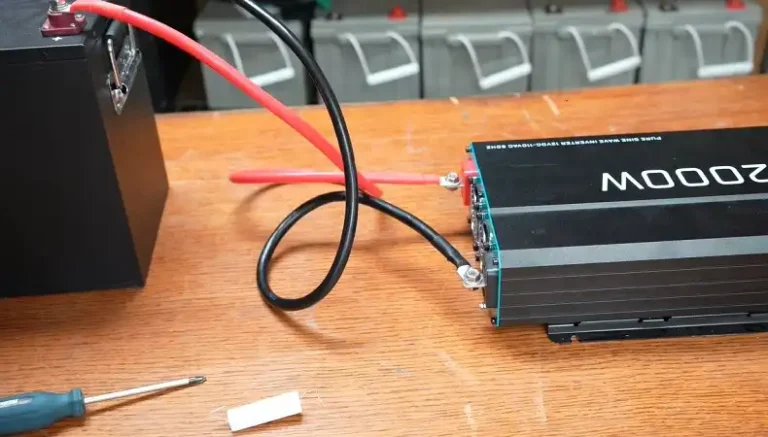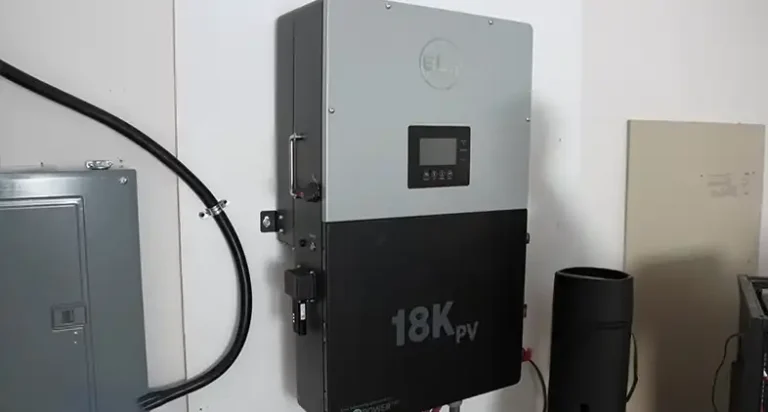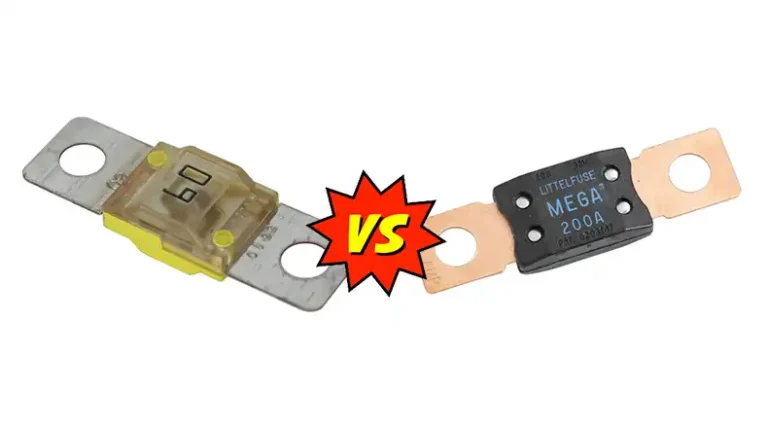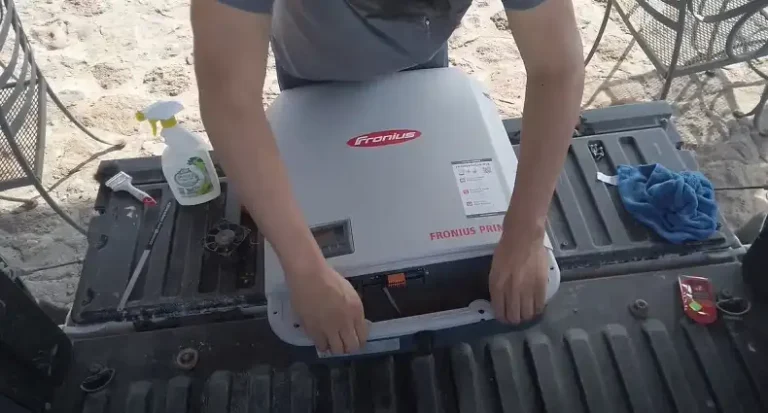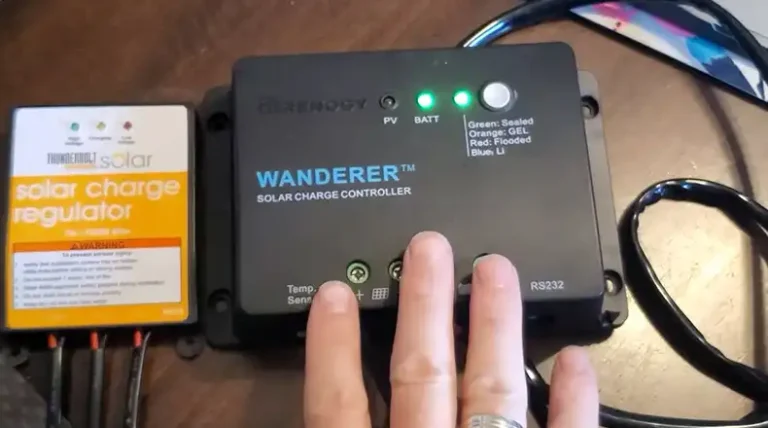Does Solar Inverter Make Noise?
Thinking about making the switch to solar power? That’s fantastic! However, a common concern for new solar users is noise pollution. You might be wondering if the inverter, will disrupt your peace and quiet. Well, in short, the solar inverter will surely make some noise! However, it’s tolerable and there is nothing to be worried about!
In this article, I will discuss in detail how much sound a solar inverter can make and whether it can be a reason for your or your neighbours’ headaches! Let’s begin then
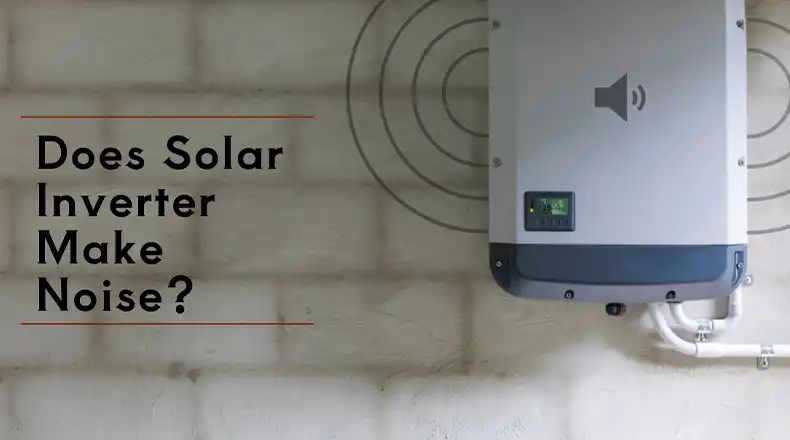
How Much Noise a Solar Inverter Can Make?
Solar inverters play a crucial role in converting the direct current (DC) electricity generated by solar panels into alternating current (AC) that powers our homes and businesses. While these devices are designed with noise-reduction technology, it’s natural for them to produce some level of noise during operation.
Generally, most modern solar inverters generate noise levels ranging from 40 to 60 decibels (dB). To put that into perspective, a typical conversation falls around 60 dB, while a quiet office environment is approximately 40 dB. When it comes to the noise levels of different inverter types, the order tends to be: Central Inverters > String Inverters > Micro-inverters. Central inverters, which serve larger solar installations, tend to produce slightly more noise than their string and micro-inverter counterparts, which are designed for smaller residential or commercial systems.
Will the Noise Create Disturbance to Your Ears?
Given the relatively low noise levels produced by solar inverters, it’s highly unlikely that the sound will cause significant disturbance or discomfort to your ears. The noise levels are comparable to a typical conversation or a quiet office environment, which most people find acceptable and non-disruptive.
Moreover, the perceived loudness of the inverter decreases as the distance from the device increases. This phenomenon is known as the inverse square law, which states that the sound intensity drops off exponentially as the distance from the source increases. So, if the inverter is installed at a reasonable distance from living or working areas, the noise will become even less noticeable, and the chances of it causing any disturbance will be minimal.
What If the Solar Inverter Makes More Noise?
While most solar inverters operate within the expected noise range, there are instances where they may produce more noise than usual. Several factors can contribute to increased noise levels, and it’s crucial to identify and address these potential issues to ensure optimal performance and minimal disturbance.
Increased Load
Just like an air conditioning unit works harder and becomes louder on a hot summer day, your solar inverter might get a little noisier when it’s converting a higher volume of solar energy. This is perfectly normal behavior and shouldn’t raise any major concerns. As the inverter works harder to handle the increased load, it’s natural for the internal components to generate slightly more noise. However, if the noise levels become excessive or disruptive, it may indicate a more significant issue that requires attention.
Faulty Fan
Solar inverters rely on cooling fans to regulate their internal temperatures and prevent overheating. If the cooling fan malfunctions or becomes faulty, it might generate a louder, grinding noise. This could be due to worn-out bearings, accumulated debris, or other mechanical issues within the fan assembly. A faulty fan can not only contribute to increased noise levels but also potentially compromise the overall efficiency and longevity of the inverter if left unaddressed.
Loose Components
Over time, vibrations and general wear and tear can cause internal components within the inverter to loosen, leading to rattling or buzzing sounds. Loose components can create unwanted noise as they vibrate or rub against other parts of the inverter. This issue may become more pronounced as the inverter ages or if it has been subjected to excessive vibrations or impacts during installation or maintenance.
If you notice your inverter making significantly more noise than usual, it’s best to contact your solar installer for a quick inspection. They can diagnose the issue and ensure your solar system continues to operate smoothly and, more importantly, quietly.
Wrapping Up
Living with solar panels is a great way to save money and help the environment. But what about that box on the wall – is it going to be a noisy neighbor? I hope this guide has helped you understand solar inverter noise levels and how to keep things quiet. Remember, most inverters are pretty silent, and with some easy tips, you can ensure yours stays that way. If you have any questions about solar inverter noise or anything solar-related, leave a comment below. Thanks for reading, and happy solar power journey!

